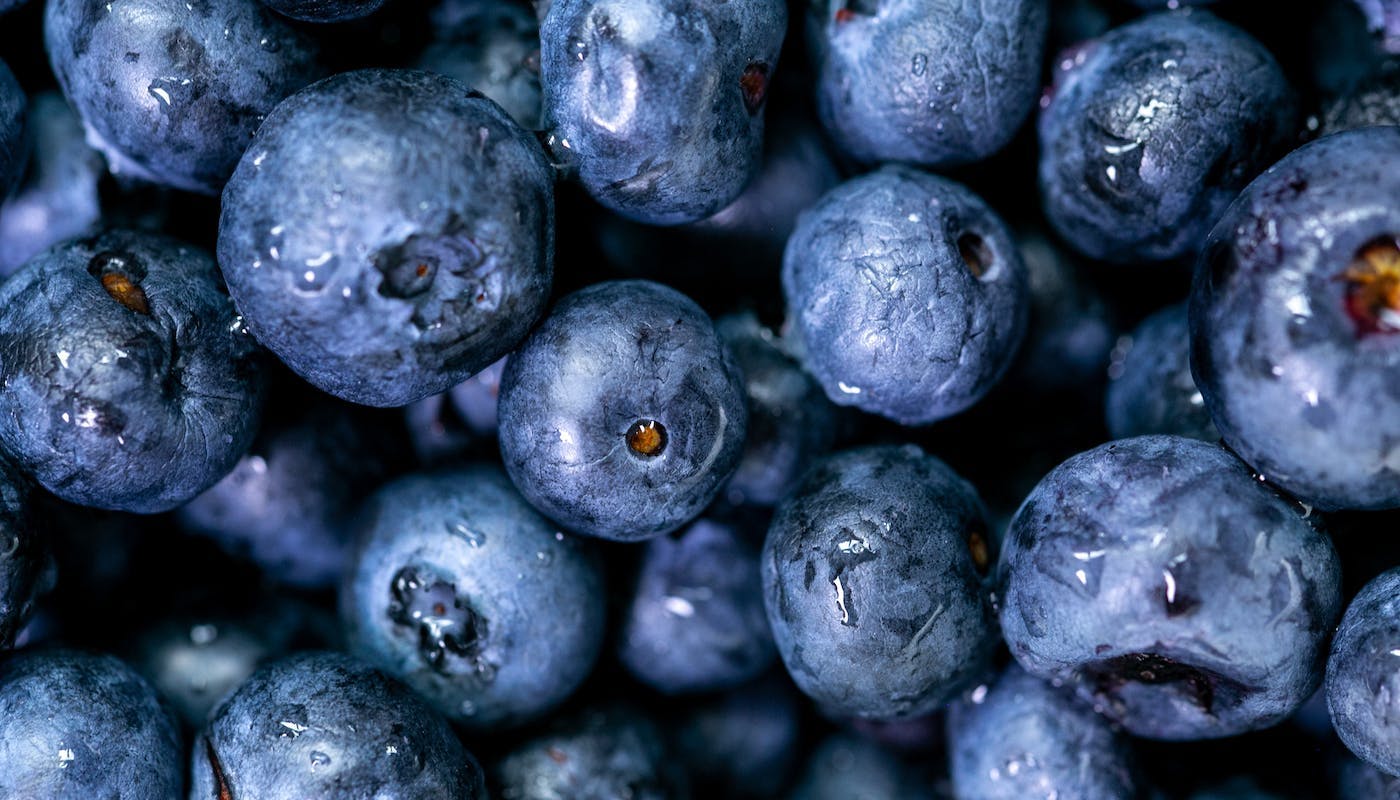Can dogs eat blueberries?
Do you know a dog who loves fruit? While some of our canine pals can happily devour fruit straight from the bushes, others will pick around the berries in a bowl. And yet other dogs will sit patiently waiting for the end of a banana! If your dog’s eaten a handful of blueberries, we have good news: they’re unlikely to suffer with any ill effects. In fact, there might be a positive effect! What’s the deal with dogs and blueberries?
How can blueberries affect dogs?
If you’re here because your dog has merrily chomped a box of blueberries, then you’ll be pleased to know that they’ll probably be OK!
Is your dog looking a bit sorry for themselves? Blueberries contain plenty of fibre and, while that’s great in moderation, it can cause diarrhoea or vomiting. You’ll notice if your dog has stomach problems. However, it’s a symptom that will usually pass quickly.
If they ate just a few blueberries, then your dog might actually benefit from the blueberry’s superpowers!
Do blueberries have any health benefits for dogs?
Blueberries are beloved by humans, high in antioxidants and Vitamin C, they’re brilliant for the digestive and immune systems. We don’t know, but we strongly suspect that many of the same benefits can be applied to dogs.
Vitamin C, aplenty!
Vitamin C is hugely important for our bodies, and for our dogs. It’s essential in the canine diet and it can work to improve immunity and skin. Vitamin C is made by dogs but it can become depleted if they’re suffering from disease or stress. So a supplementary form of Vitamin C can be useful for dogs with joint problems, and it helps them to fight infection and viruses. It’s an all-round super-nutrient!
Antioxidants ahoy
We all know that antioxidants are superhero ingredients. But what do they actually do? By inhibiting oxidation, antioxidants limit cell damage inside the body. They’re part of the body’s defence against ageing as well as conditions like cancer, heart disease and inflammations. Many studies have shown that the anthocyanins found in blueberries are beneficial in loads of wayshttps://www.ncbi.nlm.nih.gov/pmc/articles/PMC5890122/.
Calcium and magnesium
Blueberries are rich in bone-friendly nutrients including iron, calcium, zinc, Vitamin K and magnesium. These help to build strong bones and flexible joints, which your dog needs for every walk, run, and game of chase!
Should I add blueberries to my dog’s diet?
You can safely add blueberries to your dog’s diet – in small amounts, after you’re sure they don’t cause stomach upset. What’s more, they contain valuable minerals, vitamins and antioxidants that can help your dog to stay healthy.
When adding berries to your dog’s bowl, make sure you wash them thoroughly first. Your dog’s diet should always contain protein and fat, with treats (like the blueberry) making up 10% or less. Don’t forget that blueberries contain natural sugars, which should be limited to avoid things like diabetes and heart disease.
Tip: If your dog loves blueberries, they could be great treats for training sessions! Remember to adjust your dog’s dinner if you are feeding treats during the day. Their total caloric intake should always be monitored to ensure they’re not overfed.
Just one warning: Be watchful if you decide to feed blueberries to your dog. Blueberries can be quite small and somewhat hard, presenting a choking risk. Particularly if your dog is small, you might consider mashing the blueberries a little bit (or blending in a smoothie with a little plain yoghurt) so they’re less likely to become lodged in the throat.
PS: Boosting their nutrients? There’s an easier way!
If you want to increase the antioxidants in your dog’s diet, we’d be remiss not to tell you about our brilliant supplement, The One/products/the-one. It features Green Tea Extract,/products/the-one which is rich in catechins – a type of antioxidant. There’s also Taurine/products/the-one, an amino acid with antioxidant effects, which is thought to prevent heart problems in dogs.
Are other berries good for my dog?
Don’t add any old berries to your grocery cart. While blueberries, raspberries and strawberries can all offer similar benefits (and are usually safe in moderation), some berries are far more toxic.
For example, gooseberries, grapes, cranberries and cherries are all toxic for dogs. If eaten, those berries can cause vomiting and diarrhoea as well as breathing difficulties or staggering. Many berries growing in the garden (like shiny red holly berries) can also cause serious problems if your dog takes a mouthful.
If your dog displays any worrying symptoms, you should immediately call the vet.
